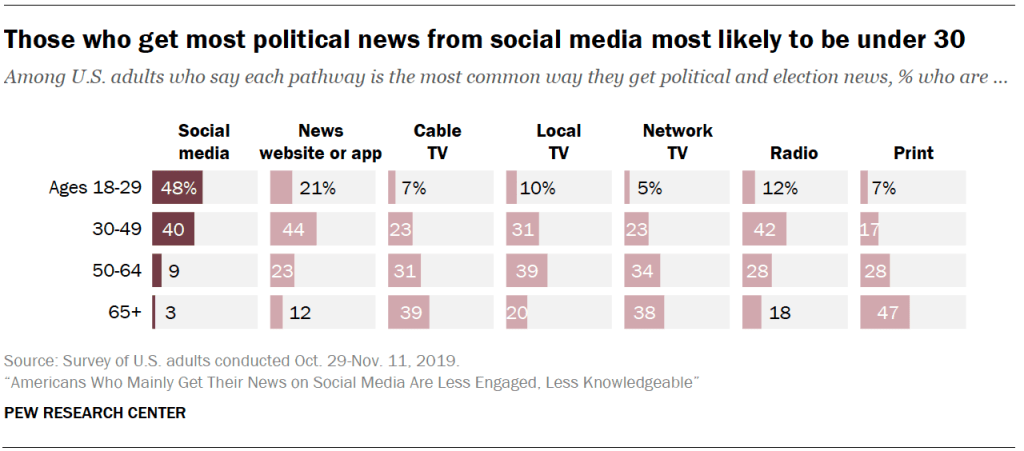Americans Who Mainly Get Their News on Social Media Are Less Engaged, Less Knowledgeable
Pew Research Center's 
The rise of social media has changed the information landscape in myriad ways, including the manner in which many Americans keep up with current events. In fact, social media is now among the most common pathways where people – particularly young adults – get their political news.
A new Pew Research Center analysis of surveys conducted between October 2019 and June 2020 finds that those who rely most on social media for political news stand apart from other news consumers in a number of ways. These U.S. adults, for instance, tend to be less likely than other news consumers to closely follow major news stories, such as the 
Overall, this group tends to pay less attention to news than those who rely on most other pathways. As of early June this year, just 8% of U.S. adults who get most of their political news from social media say they are following news about the 2020 election “very closely,” compared with roughly four times as many among those who turn most to cable TV (37%) and print (33%).
The only group with a level of engagement that is similarly low is U.S. adults who get their political news primarily from local television, 11% of whom are following election news very closely. This is a common thread throughout the analysis: The social media group and the local TV group are often comparable in their lower levels of engagement with and knowledge of the news.
But even compared with those who get their news from local TV, Americans who rely on social media are less likely to be following the biggest storyline of the year thus far – the coronavirus outbreak. Roughly a quarter (23%) of U.S. adults who rely most on social media for political news say they are following news about the COVID-19 pandemic very closely, according to the June survey. Higher shares in every other group say they are tracking the outbreak very closely, including those who get their news from cable TV (50%), national network TV (50%), news websites and apps (44%), or local TV (32%).

This relative lack of attention to news goes hand in hand with lower levels of knowledge about major current events and politics. Across the nine months of study and five separate surveys, respondents were asked 29 different fact-based questions that touch on a variety of topics related to the news, from economics to Donald Trump's impeachment to the COVID-19 outbreak and more (see 
Even as Americans who primarily turn to social media for political news are less aware and knowledgeable about a wide range of events and issues in the news, they are more likely than other Americans to have heard about a number of false or unproven claims.

